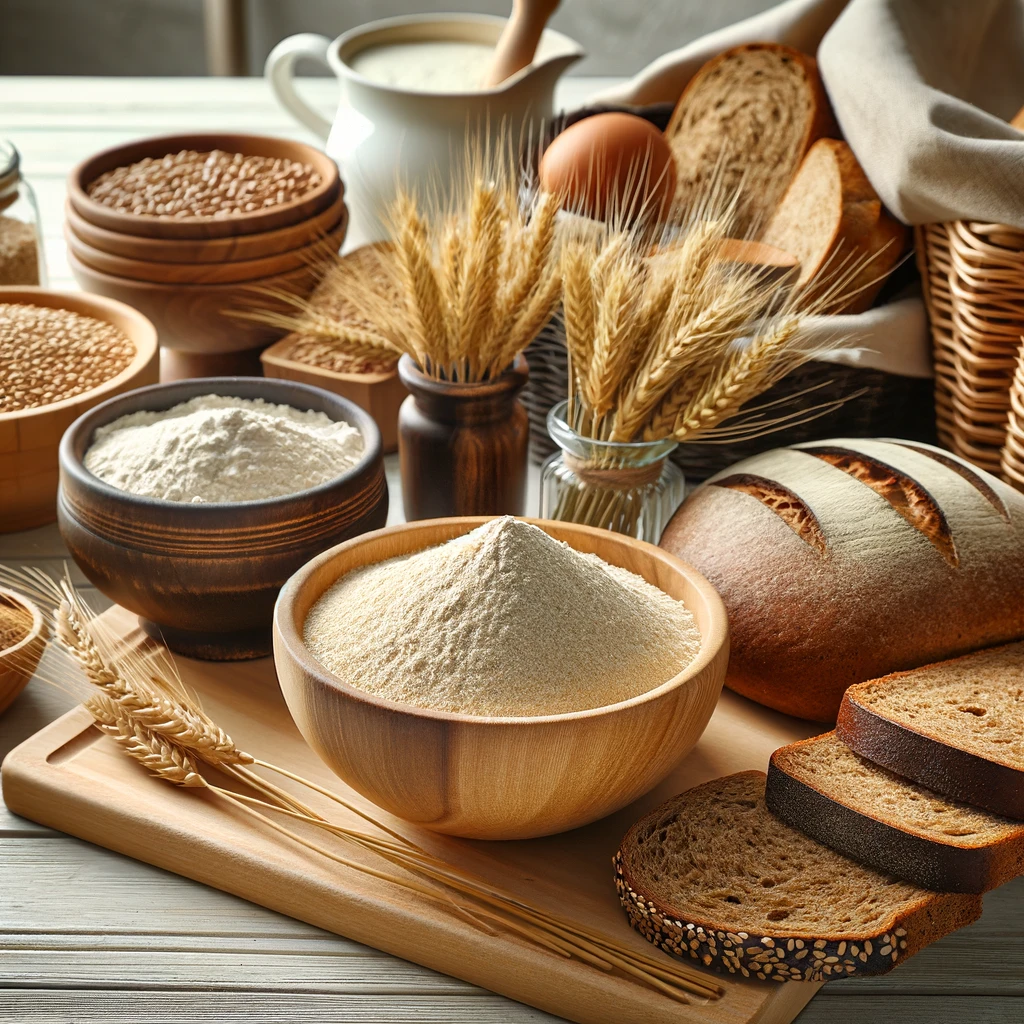reliable food sales
RYE
RYE
Couldn't load pickup availability
Rye is a nutrient-rich grain known for its hearty flavor and versatility in culinary applications. As a staple grain in many cultures, rye offers a robust, slightly earthy taste that enhances a variety of dishes, from bread and baked goods to savory meals and beverages.
What is Rye? Rye (Secale cereale) is a cereal grain closely related to wheat and barley. It is primarily grown in Eastern Europe and Russia, although it is cultivated in many other regions worldwide. Rye grains are long and slender with a greenish-brown hue, and they can be processed into flour, flakes, and other products for diverse culinary uses.
Types of Rye Products:
- Rye Berries: Whole rye kernels that have been minimally processed. They retain their bran, germ, and endosperm, offering maximum nutritional benefits.
- Rye Flour: Made from ground rye berries, rye flour is available in light, medium, and dark varieties, depending on the degree of bran and germ removal.
- Rye Flakes: Made by steaming, rolling, and drying whole rye berries, rye flakes are similar to rolled oats and can be used in cereals and baking.
- Cracked Rye: Coarsely ground rye berries that cook faster than whole berries and add texture to dishes.
- Rye Bread: A traditional bread made with rye flour, known for its dense texture and rich flavor.
Uses in Culinary Applications:
- Baking: Rye flour is a key ingredient in various types of bread, including traditional rye bread, pumpernickel, and sourdough. It adds a distinctive flavor and dense texture to baked goods.
- Breakfast Cereals: Rye flakes can be used to make hearty breakfast cereals, porridge, or granola, providing a nutritious start to the day.
- Savory Dishes: Whole or cracked rye can be cooked and used as a base for salads, pilafs, or as an alternative to rice and other grains in savory dishes.
- Beverages: Rye is used in the production of whiskey and other distilled spirits, contributing to their unique flavor profiles.
- Snacks: Rye flour is used to make crispbread, crackers, and other savory snacks, offering a healthy and flavorful option.
Health Benefits:
- High in Fiber: Rye is an excellent source of dietary fiber, particularly soluble fiber, which aids in digestion, helps regulate blood sugar levels, and supports heart health.
- Nutrient-Rich: Rye contains essential vitamins and minerals, including manganese, phosphorus, magnesium, and B vitamins.
- Heart Health: The high fiber content in rye helps lower cholesterol levels and reduces the risk of cardiovascular diseases.
- Weight Management: Rye can promote a feeling of fullness and satiety, helping with weight management and reducing overall calorie intake.
- Digestive Health: The fiber in rye supports healthy digestion and regular bowel movements.
How to Use:
- In Baking: Use rye flour to make bread, muffins, pancakes, and other baked goods. Combine it with other flours to achieve the desired texture and flavor.
- In Breakfast: Cook rye flakes or cracked rye to make porridge or add them to granola and muesli mixes.
- In Salads and Side Dishes: Cook whole or cracked rye berries and use them as a base for grain salads, pilafs, or as a substitute for rice.
- In Beverages: Use rye in brewing and distilling to create flavorful alcoholic beverages like whiskey.
Storage: Store rye products in an airtight container in a cool, dry place to maintain their freshness and prevent them from becoming rancid. Whole rye berries can be stored for longer periods, while rye flour and flakes should be used within a few months for optimal quality.
Rye is a versatile and nutritious grain that adds a distinctive flavor and rich nutritional profile to a variety of dishes. Its unique taste and health benefits make it a valuable ingredient in baking, cooking, and beverage production, enhancing the culinary experience with every use.
Share



